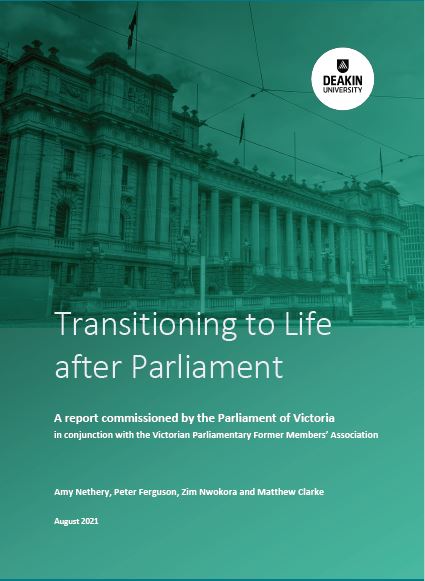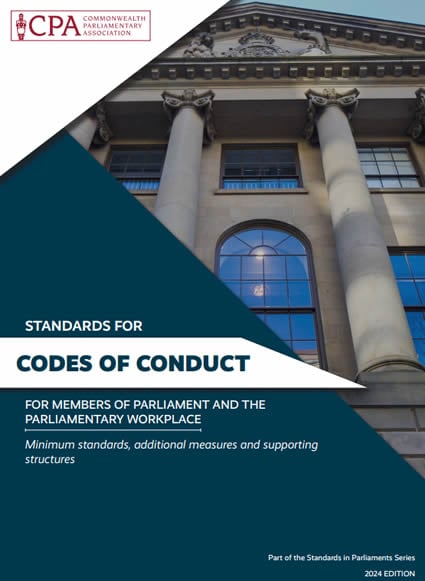About the project
The Parliamentary Careers and Workplaces Project conducts world-leading research into the factors that contribute to parliamentary culture. We work with members of parliament (current and former), clerks and parliamentary officers to develop new and deeper understandings about how well parliaments function to deliver their democratic goals, and how this capacity can be enhanced. Our research has led to reforms in parliamentary processes in Australia and internationally.
Researching both external and internal conditions
The culture of a parliament is a complex ecosystem, taking its form from external and internal conditions. The external factors, which are difficult to change in the short run, include a country’s democratic culture, media landscape, and socio-economic conditions. The internal factors include the presence (or absence) of measures such as codes of conduct, parliamentary careers and ethics training, and the culture of workplace relations, including the parliamentary staff and visitors. Although significant resources have been committed to reform this area, there have been few attempts to properly evaluate ‘what works?’ and ‘what is possible?’ in terms of effecting sustained and positive cultural change in parliaments.
Considering parliamentarians’ background and experience
Parliamentarians’ personal background and experience, and how they enter the parliament, may also contribute to the workplace culture. International scholarship suggests that more diverse parliaments have more respectful workplace cultures. We can also hypothesise that people who enter parliament after non-political careers bring to their role different workplace expectations. Therefore, understanding diversity and its barriers, and the careers of parliamentarians (including their careers before and after parliament), enables a deeper understanding of how parliamentary cultures are formed and how they can be changed.
Funded projects
Our work is supported by an Advisory Group comprising scholars, former members of parliament and former clerks. Explore current projects and the impact and reports that have resulted from recent project work.
Transitioning to life after parliament
The 2020-2021 project investigated the various challenges experienced by former parliamentarians in the transition to life after parliament and evaluated existing support structures available during and after a parliamentary career. The transitional support structures provided by 33 other Commonwealth parliaments were also examined. This project is the most substantial study undertaken on this topic. Our 10 recommendations have informed changes to parliamentary procedures in Australia and internationally. The project was funded by the Parliament of Victoria, the Commonwealth Parliamentary Association (Vic), in conjunction with the Victorian Parliamentary Former Members Association.
Read the Transitioning to Life after Parliament report (PDF, 3.4MB)
Standards for codes of conduct
This 2023-2024 project drew on international best practice and scholarship to update the standards for codes of conduct for members of parliament and the parliamentary workplace. These standards inform the development of codes of conduct in 180 Commonwealth parliaments. The project also conducted primary research to understand the challenges faced by parliaments in implementing codes of conduct. The project was funded by the Commonwealth Parliamentary Association (London).
Overseeing the overseers
This 2024 project, funded by the Legislative Leadership and Governance Group, analyses the design and practical functioning of anticorruption commissions and their oversight arrangements in three Australian jurisdictions.
Help us improve parliamentary cultures
Work with our world-class researchers to help reform parliamentary processes in Australia and internationally.
Principal researchers
Associate Professor Amy Nethery is a political scientist with expertise in public policy. Her scholarly work is dedicated to enhancing our democratic institutions, aiming to strengthen their foundations and promote inclusive and participatory governance. She has a track-record of leading strong teams to deliver impactful scholarship and implement policy change. Her work has been recognised with several awards and competitive grant success. Among other funded projects, she has been a partner in a large multinational collaborative research project funded by the European Commission.
Associate Professor Zim Nwokora is a comparative political scientist with expertise on governance institutions. His recent research appears in journals such as Parliamentary Affairs, International Journal of Constitutional Law, Governance and Political Research Quarterly. He is currently an associate professor in politics and policy at Deakin University, and prior to that held postdoctoral fellowships at Melbourne Law School and the Centre for Governance and Public Policy (Griffith University). He holds Bachelor of Arts, Master of Philosophy and Doctor of Philosophy degrees, all from the University of Oxford.
Dr Peter Ferguson is a senior lecturer in politics and policy at Deakin, and is currently Politics and International Relations Discipline Convenor. Before joining Deakin in 2015, Peter lectured in political science at the University of Melbourne, where he obtained his PhD in international relations in 2014.
Alfred Deakin Professor Matthew Clarke is Pro Vice-Chancellor Researcher Development. Prior to this, he was Foundation Head of the School of Humanities and Social Sciences. Matthew focuses on issues of social development with a focus on the Pacific region.
Alfred Deakin Professor David Lowe is Chair of Contemporary History at Deakin. His research centres on two main themes: the modern history of security, development and decolonisation in Asia and Australia; and historical consciousness in public life and policy. His most recent book (edited, with Carolyn Holbrook and Lyndon Megarrity) is Lessons from History: Leading Historians Tackle Australia’s Greatest Challenges (NewSouth, 2022).
Academic publications
Ferguson, P., Nethery, A. and Nwokora, Z. 2023, ‘Transitional supports for former members of parliament: Benchmarks for ‘professional parliaments’, Parliamentary Affairs, 1-24.
Nethery, A., Ferguson, P., Nwokora Z. and Clarke, M. 2022, ‘Politics as a transitory vocation: A case study of the post-parliamentary challenges faced by former Victorian MPs’, Australian Journal of Political Science, 57(4), 403-419. This article was awarded the Mayer Prize (Honourable Mention) for the best original journal article published in AJPS that year.
Media
The project has attracted interest in the media. Here’s a snapshot of published articles:
Media release: Former MPs speak of unemployment, grief and challenges post-politics (31 May 2022)
Parliament of Victoria news report: Research report examines transitioning to life after parliament (31 May 2022)
The Conversation article: Everything has gone: a world-first study looks at what happens when MPs lose their seats (14 June 2022)
ABC News Radio interview: MPs struggle with life after politics (16 June 2022)
Sunday Herald Sun article: Ex-Federal MP Tim Wilson claims he cried in a ‘foetal position’ after losing seat to Teals (paywall content, 10 July 2022)
Contact us
If you require further information about the Parliamentary Careers and Workplaces Project or would like to discuss future research partnerships, contact Dr Peter Ferguson:
Phone: +61 (03) 924 43969
Email: peter.ferguson@deakin.edu.au


